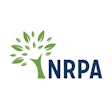A friend who lives in an urban area was telling me about her community association's idea for rehabbing a vacant lot. At present, it's just a weed-choked area, but residents have plans to turn it into a short fitness course, with stations for doing stretching, balancing and so forth.
My friend thought this was a great idea - until she realized the group hadn't yet gone through the official channels for taking ownership of the lot. They hadn't spoken with the city or developed the required Memorandum of Understanding for use of the area. They simply had plans to extinguish the vegetation, put down mulch or some other surface, and then look into getting grants for purchasing the equipment. At some point, they figured, they'd approach the city, but they wanted to put all the pieces in place first.
"I guess they just figured, 'Who could really object to a fitness course?'" my friend said. "They actually got irritated with me for even asking about getting formal permission to do anything."
We talked about the time another group had decided to turn a vacant lot into a dog park by putting up chicken wire and hanging a notice saying dogs were welcome. Problem was, they hadn't asked the city for permission to use the lot, and they hadn't asked the people whose house bordered the lot whether they would agree to this, either.
As it turned out, the space was much too small to accommodate the number of dogs using it, and within a short time, the biological load was too much for the soil. The neighbors complained about the smell and noise. Over the loud protests of dog owners, the city came in, pulled out the fence, put up NO DOGS signs and had to call in a service to do soil remediation.
"A dog park might have worked somewhere else, but people were in such a rush to build this one here that nobody wanted to follow the rules," my friend said, "and I'm really afraid people are going to do the same thing with this fitness course. I don't think anyone has looked into who is going to install the equipment or maintain it, or who is responsible if someone gets hurt using it."
My friend and I agree that communities need public fitness facilities, particularly in low-income areas where people may not be able to afford a gym membership. But when a community takes ownership of, rather than leadership on, a project, and circumvents the formal permission process, there's a problem. A lot of steps have to come between Point A (the vacant lot) and Point B (the finished product) for the project to work.
I wonder if those who manage and oversee such arrangements on the municipal level are seeing more of these requests from communities, and if so, how they're handling them. We'd all like to see more opportunities for fitness. Let's hope everyone can work together to make them happen.




































